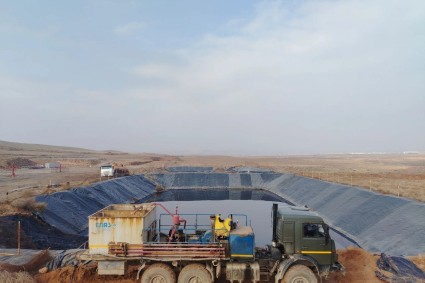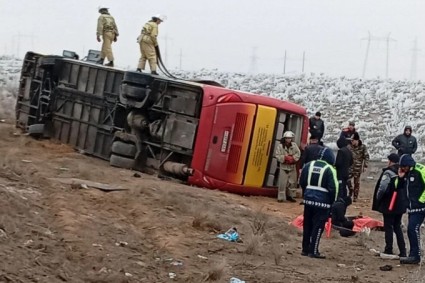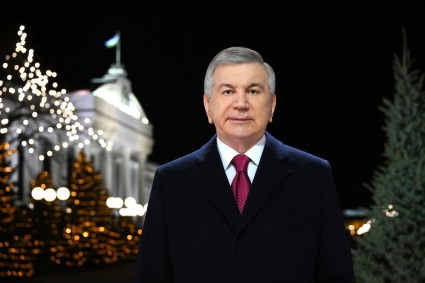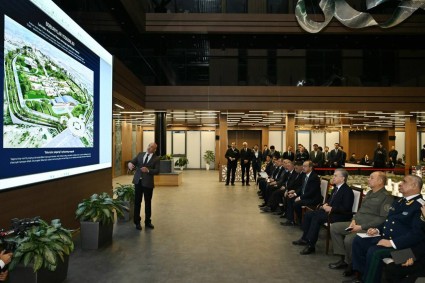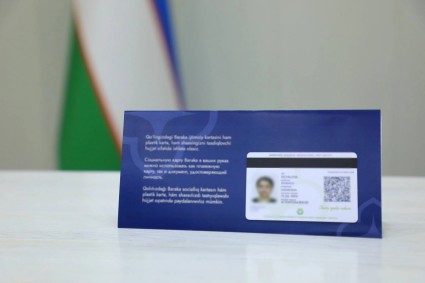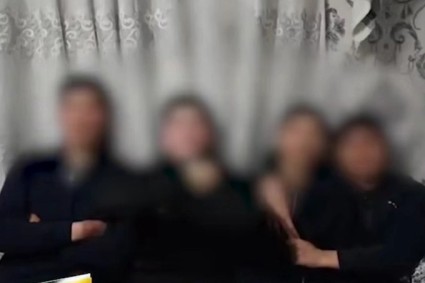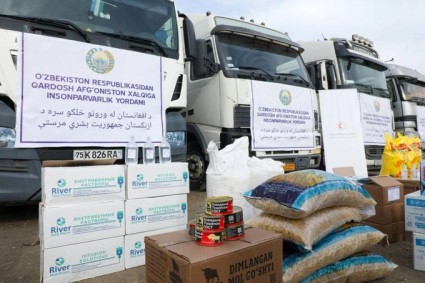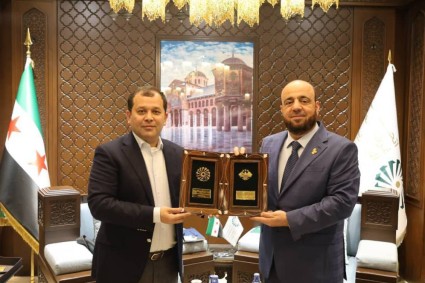The EU Central Asia Envoy (EUSR), Terhi Hakala will soon wrap up her posting and will visit the countries of the region on a farewell tour.
During her visit to Uzbekistan, she gave an interview to Gazeta.uz, in which she shared her thoughts on the most important issues on the agenda between the EU and Uzbekistan and the importance of unity between the countries of Central Asia.
— I would like to start the conversation with your words, which you said in July 2021, upon assuming the position of the Envoy. “The EUSR mandate for Central Asia emphasizes the need to strengthen regional cooperation and stability in partnership with other international actors. In the coming years, this will be even more important than before.” These words seem prophetic to some extent. Did you expect that you would face so many events in this position?
— Yes and no. I think that would be the short answer. Of course, we could predict that some changes would happen in Afghanistan. We already knew that the [US and NATO] coalition was leaving. But we did not expect how quickly everything would change. Everything changed within a month of my arrival in this position. There were also other geopolitical changes, such as the war in Ukraine and other events in the region.
— What results have you and your team achieved in these almost four years?
— Despite the difficult years, we have indeed achieved a lot. You mentioned the importance of regional cooperation, and this has indeed happened — regional cooperation in Central Asia has expanded. We have also been able to strengthen our partnership and raise the level of interaction between the European Union and Central Asia to the level of leaders.
Last year, we held a ministerial meeting in Luxembourg with the participation of representatives of the European Union and Central Asian countries, consisting of 32 ministers. We created a new roadmap for our cooperation, which supports the implementation of the EU Strategy for Central Asia.
We managed to organize several regional events. My team played an important role in organizing the civil society forum, the economic forum in Tashkent, two security forums and the youth action on water. Quite a few events were held.
This cooperation, this deep and close dialogue between the EU and Central Asia, has become a kind of a result of the last years.
In addition, the European Union has launched large programs and the Global Gateway initiative. One of them, of course, is related to the interconnectedness of our regions. We are talking about this a lot now. Some of the Team Europe initiatives concern the green transition, green development, for example, water, energy and digitalization.
— You underscored that regional integration in Central Asia has expanded over the past years. Is this momentum still there, or has the process slowed down?
— I think there is momentum. I would say more than ever. Four years ago, it was clear that we had to strengthen the region. There were certain regional problems, such as border disputes between Kyrgyzstan and Tajikistan and other issues. But the momentum is more than ever, because it is not just empty talk when we say: the region will be stronger if you work together. Be it economic development, political dialogue, connectivity, water resources, solving regional problems – all of this is certainly important.
In recent years, the presidents of the countries in the region have been very active, consultative meetings of the leaders are held annually. There is also interaction between capitals, governments at different levels. There are also plans for the future. The Treaty on Friendship, Good-Neighbourliness and Cooperation for the Development of Central Asia in the 21st Century, signed by three countries, also speaks of moving forward. And the more you do, the more you feel: when the region acts as a single strong whole, it brings benefits.
- Is the EU's experience testimony to this?
- Yes. The EU and other regional agreements or cooperation, for example, the Visegrad countries, the Nordic countries, the Nordic-Baltic cooperation. You can always cooperate with your neighbours. There is healthy competition in all regions, this is obvious. But when there are cross-border problems, we must find cross-border solutions to these problems and strengthen networks, connectivity, trade, good neighbourly relations. This is the main policy that should be on everyone's mind - to have good neighborly relations with neighbors.
- The first EU-CA summit was planned for this year, but according to the latest information, it will take place next year. What is the reason for postponing this event? Are there any updates on the new dates?
- First of all, we are very sorry that we had to postpone the summit. This year was quite difficult, we had a transition period in the EU due to the elections in the spring and the formation of a new government.
It was a shame, but it was just a calendar issue, nothing political. And we are very grateful to your president, your government, for extending the invitation to host this first-ever EU Central Asian summit – that’s what we call the planned full summit in Samarkand.
It will be a big event next year. Now that our new leaders in Brussels have started working, they will definitely agree on a date for this meeting, because it is very important – it will consolidate the high-level dialogue that we have been developing over the years.
I would also like to say that, unfortunately, Central Asia was not the only region that suffered from the difficulties with the schedule and the transition period in Brussels. Many other regions also did not get the meetings they expected.
– Is there a chance that the long-awaited signing of the Enhanced Partnership and Cooperation Agreement will take place on the sidelines of the upcoming summit, or will it still happen during the visit of the President of Uzbekistan to Brussels?
— The Enhanced Partnership and Cooperation Agreement will, of course, be signed. It is also at the stage of internal procedures in Brussels, our structures and the commission are working on it in cooperation with the member states. We are trying to speed up the processes, but the EU bureaucracy is quite heavy. So I cannot tell you today how everything will happen.
But we very much hope to see President Mirziyoyev in Brussels. This is a very long-awaited meeting. We have all been waiting for this.
— What issues will be discussed at the summit in 2025?
— All the issues that we are currently working on will be on the agenda. Today, the agenda concerns connectivity, security, political and geopolitical developments, climate change. But, of course, there will be several topics that may arise immediately before the meeting. And we are preparing for everything.
But in general, the discussion will be about the EU's cooperation with Central Asia, how to develop it, how to strengthen it, expand the dialogue and be the best partners that we have been over the past 30 years.
— You mentioned the issue of security that will be discussed at the summit. What kind of security – food, climate, security, political?
Yes, security is a very broad topic. It is part of my mandate, and I have been dealing with security issues throughout my diplomatic career. So it is very close to my heart.
In Central Asia, we have been implementing programs for many years on border security, law enforcement and reform, as well as other security issues that are very relevant for the region.
Let's face it: right now, in the current situation, we know that Afghanistan is going to be a very difficult neighbor for the Central Asian countries, as well as for the rest of the world. Border security, as well as threats emanating from Afghanistan, will definitely be on the agenda.
What can we do together? This, of course, includes cooperation in the fight against terrorism, radicalization, extremism, all those issues that are very important for all of us and on a global scale. Together with them, there are broader themes such as climate change, water sustainability and addressing the challenges that are increasingly on the horizon for Central Asia.
— Speaking of Afghanistan, will the issue of Afghan refugees also be addressed?
— Absolutely. I know that the Central Asian countries, particularly Uzbekistan, are doing a lot to reduce the risks. You are also very supportive of the education of Afghan girls and Afghans in general. It was a great gesture of goodwill that your government proposed and is implementing in cooperation with a neighboring country. This is a difficult task, and we appreciate it very much.
— You are ending your mission on a wave of intensified ties between Uzbekistan and the EU. This year, an agreement on the supply chain of critical raw materials was signed, and the EU is also working to provide Uzbekistan with access to European satellite internet. How are these projects progressing?
— Critical raw materials and access to them are very important. This is a pressing issue. We are very pleased that we signed the agreement with Uzbekistan this spring. And now we are working on a roadmap for its implementation. This is a big step because for both the EU and Uzbekistan this is an important sector for cooperation in the future. It also concerns the interconnectivity of our regions because you also need to transport goods to the European market.
Another issue is digitalization. This is part of the Team Europe initiative within the Global Gateway initiative that we launched in the region. The possibility of providing satellite communications for all Central Asian countries is being discussed to expand access to the Internet, for example, in remote places. So that all residents of Central Asia, Uzbekistan have access to digital services, as well as the Internet.
On our side, all the work has already been done. What remains is the negotiation process with the European service provider and the government of Uzbekistan. I hope that this will also be completed as soon as possible, and we will be able to move forward. This is a great project, especially for people who are not covered by cables or internet services, which already exist in the country and which are well developed in Uzbekistan. This will be a good additional element.
— Are there any new, equally large-scale initiatives in the works?
— In general, it all concerns connectivity. We have been talking for many years about the need to connect Central Asia even more closely with Europe. And in a sense, this is now happening in full swing.
For example, the Trans-Caspian Transport Corridor. This is not just a corridor from Central Asia to Europe through the Caspian Sea, through the South Caucasus, through the Black Sea, Turkey. It is about the network of logistics and transport routes in Central Asia, because we believe that by improving the connectivity between the five Central Asian countries, we will also improve the interregional cooperation that we talk about so much.
It is not only about people-to-people connections, but also about trade, about economic opportunities. According to statistics, the volume of intraregional trade is very small, so it can be increased by improving transport logistics, routes, railways, and also by taking certain measures on borders, regulations, tariff systems within the region, and then connecting all this with networks through the South Caucasus and beyond.
- And this will also help Uzbekistan diversify its export routes?
- Of course. As we know, Uzbekistan is a landlocked country, which creates many difficulties. But one corridor does not exclude another. We understand that there are other plans. And that is good because in today's global world where we are facing challenges, if one route is blocked for one reason or another or has difficulties, then we need to have alternatives, especially in Central Asia, especially in Uzbekistan, where you are landlocked. So it is very important to have all these possibilities. And we think that in the current situation it is important to improve connectivity to connect Central Asia and Uzbekistan with European networks through the South Caucasus.
- The EU Sanctions Envoy David O'Sullivan has been actively visiting Central Asian countries for the last couple of years. At one of the meetings, he joked, saying: "If I do not come to your country, then it is good." But I would still like to know if there are any plans for new visits of the Special Envoy to Central Asia?
- Yes, there will be visits. But I do not think it is bad when he comes. David O'Sullivan is a very experienced EU diplomat, and he is definitely trying to provide assistance and help.
Sanctions are a very difficult issue. They were introduced because the European Union and other Western partners want to stop the war in Ukraine and try to prevent Russia from circumventing the sanctions.
We have never asked Uzbekistan to join our sanctions policy. Not at all. We just want to prevent the circumvention of sanctions, which allows Russia to wage war. We are talking about goods that can be used on the battlefield, “dual-use” goods.
And it is David O’Sullivan’s job to monitor what is happening and to try to prevent and mitigate the situation, which, unfortunately, is still ongoing. Uzbekistan is, of course, not the only country. He visits all partner countries, and for him, visits and in-depth dialogues on the ground are very important. We have good cooperation with the Uzbek government. It has existed since the very first day of the sanctions.
But his visit is not bad news. I would even say good news, because it means that the dialogue is ongoing and is going in a positive direction. So you should look forward to his visit.
— We will wait. In your opinion, how well are Uzbekistan and Central Asia doing in cooperating to prevent sanctions from being circumvented?
- You are doing a lot. You have to understand that in such situations there are always people, companies that want to abuse, because this is a lot of money, which is associated with the need for technologies for the battlefield.
Frankly, we find them in all countries. It does not take a lot of imagination to understand that [sanctions circumvention] is happening. But I think that Uzbekistan's willingness to cooperate with the European Union is very important in this matter. And, of course, we are happy with this cooperation. We need to work closer, and it is also in the interests of the region itself - not to allow its territories to be used to circumvent sanctions.

